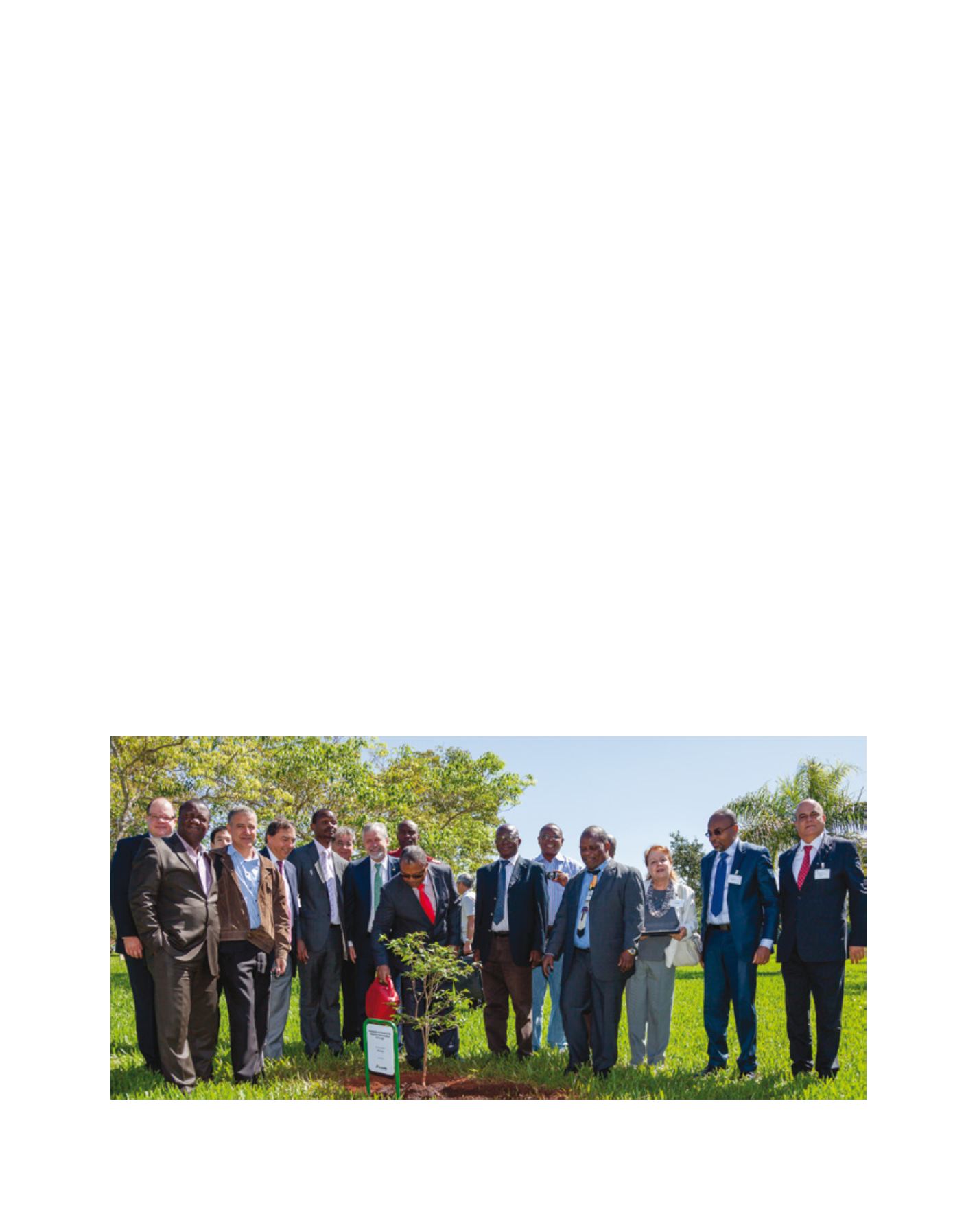

[
] 153
W
ater
E
ducation
and
I
nstitutional
D
evelopment
planners, teachers and students the ability to identify
various human activities and their relationships with
a water source within its own territories. In the case of
energy sources, the tools are able to identify the relation-
ships between available sources of renewable energy and
potential consumers in the same territory. Because the
management tools are made in FOSS, they enable access
even for managers who have little familiarity with GIS.
Touched by the technological gap that separates
Africa from the rest of the world, the United Nations
Educational, Scientific and Cultural Organization
(UNESCO) has called on international experts in
FOSS, creating a committee to suggest the best options
to African coaches. A continent the size of Africa,
living with the paradox of shortage in an abundance of
water, food and energy, needs instruments that facili-
tate management more than any other. The UNESCO
International Hydrological Programme (IHP) Hydro
free and/or Open-source software Platform of Experts
(HOPE) initiative aims to establish FOSS development
and the dissemination of innovative practices in water
management. These can be built into the Africa Water
Vision for 2025, helping prepare people to take on
the green jobs that will certainly be generated by an
initiative of this magnitude. CIH recently joined the
UNESCO-IHP HOPE programme, in an initiative to
provide African countries with GIS tools in open source
software. This is an opportunity to offer to the African
countries the same access to GIS that developed coun-
tries enjoy. CIH is part of UNESCO’s Category 2 Centre
network, and is honoured to be assisting UNESCO in
helping African managers and technicians to observe
the territories in which they live, and manage the water
resources they need.
These are related by the operating system software, and the
processed data is used to inform a list of activities in different
segments of the watershed territory. The stored and geoprocessed
data composes a set of information that can be used on different
scales for a range of regional planning activities. Thus, FOSS can be
used to draw up plans for watershed conservation, to monitor their
physical and financial execution, and then to monitor the results,
facilitating the implementation of corrective measures to establish
a cycle of continuous improvement. In relation to monitoring – a
crucial matter in watershed planning – FOSS enables, organizes and
facilitates community involvement in effective programmes, such
as the monitoring of benthic macroinvertebrates and establishing
the microfauna of rivers, as indicators of the quality of their water.
The programs developed in FOSS can be made available on the web,
reducing storage costs and maintenance and universalizing access.
Another important aspect is capacity building for the use of FOSS,
both in developing the software and customizing it for a specific use.
The International Centre on Hydroinformatics (CIH) has a good and
functional infrastructure, and a team of young and dedicated profes-
sionals committed to the development of FOSS. The centre has already
customized several GIS programs for communities with varied degrees
of capacity to manage software. Training is a major concern, and CIH
has an available computer lab with the capacity to cater to groups of
25 students. In addition to theoretical knowledge, students finish the
course with almost-complete systems to apply in real situations in their
regions. The training is done by distance learning, using the web, as
most of the trainees are volunteers who only have their spare time to
empower themselves. Collective rooms can be established with institu-
tions such as churches, clubs and public buildings so that students can
learn in groups, which always produces good results.
Based on this, CIH has been requested to cooperate with other coun-
tries in Latin America, in the management of water resources and of
renewable energy in microgeneration systems with management tools
based on FOSS technologies. This offers decision makers, managers,
Sharing FOSS development and innovative practices in water management can help prepare people to take on the green jobs that will be
generated by the UNESCO-IHP HOPE initiative
Image: CIH


















